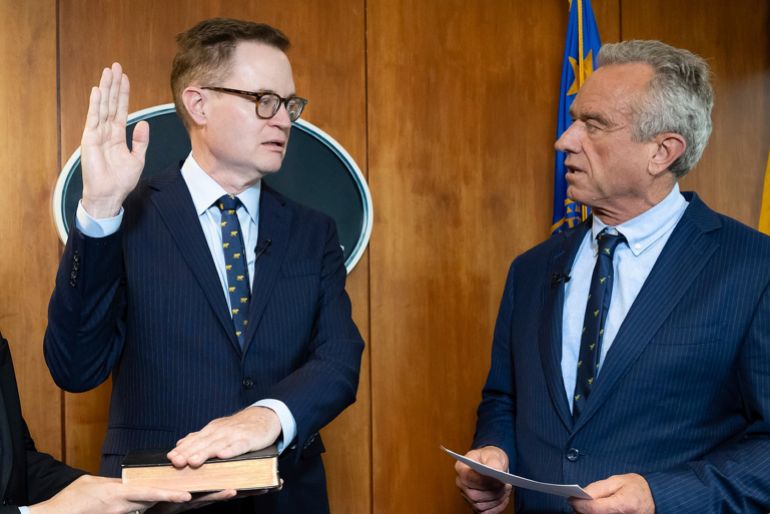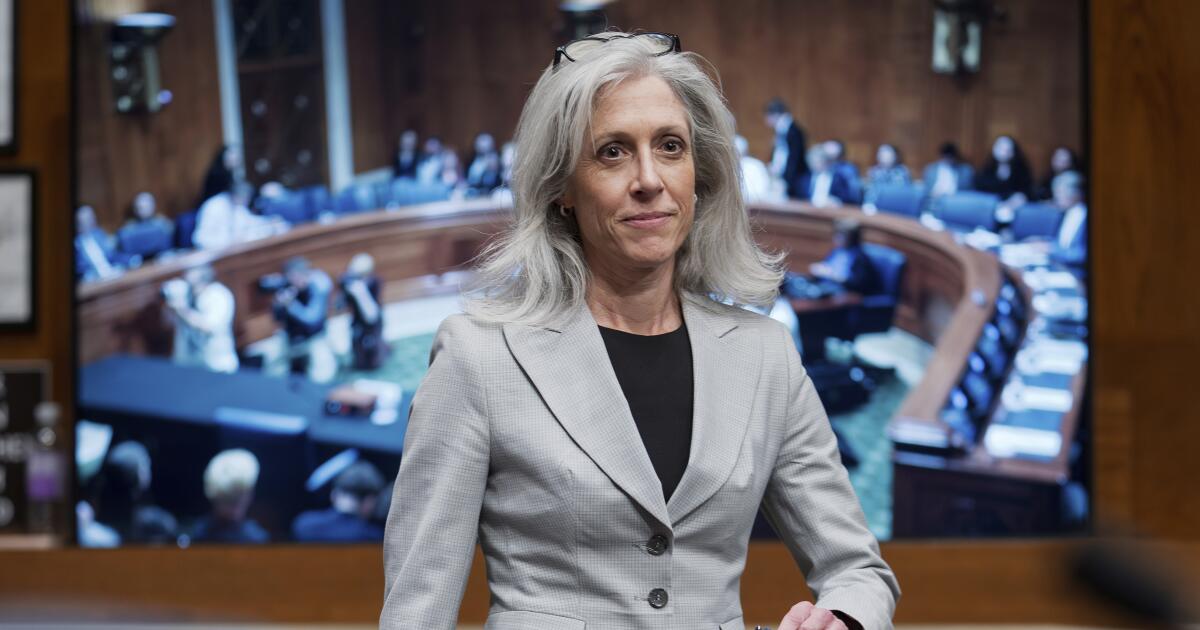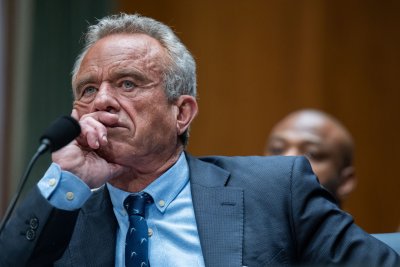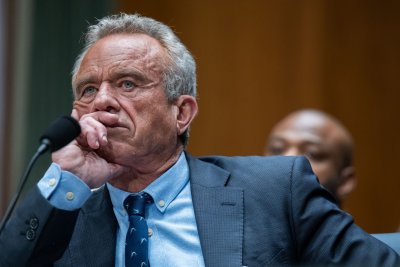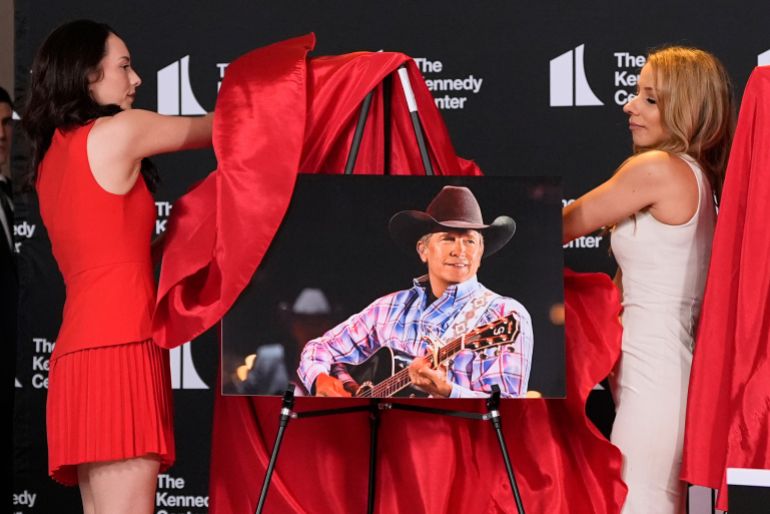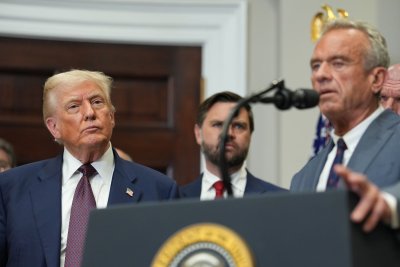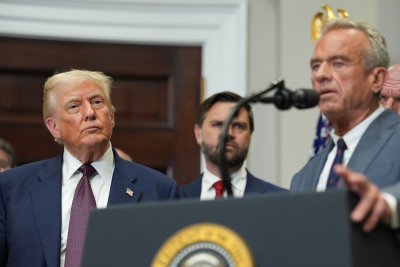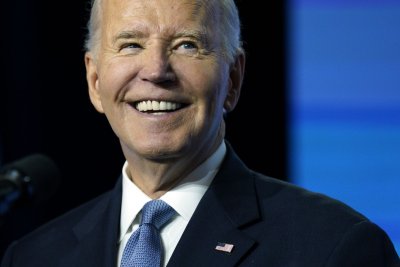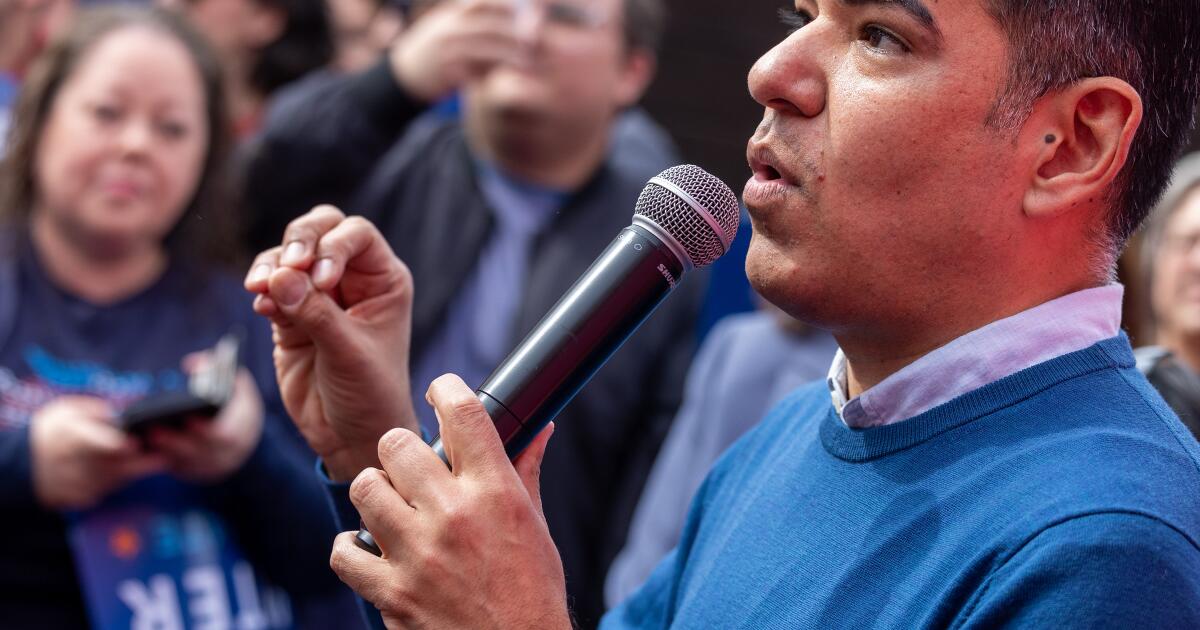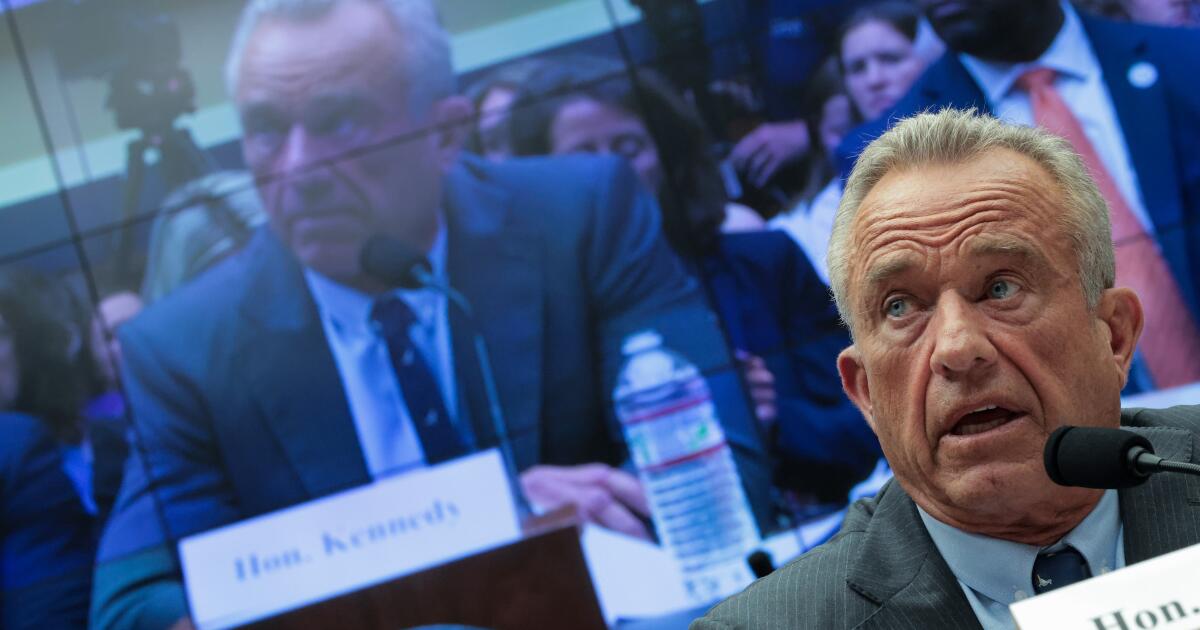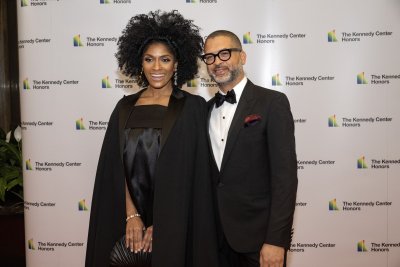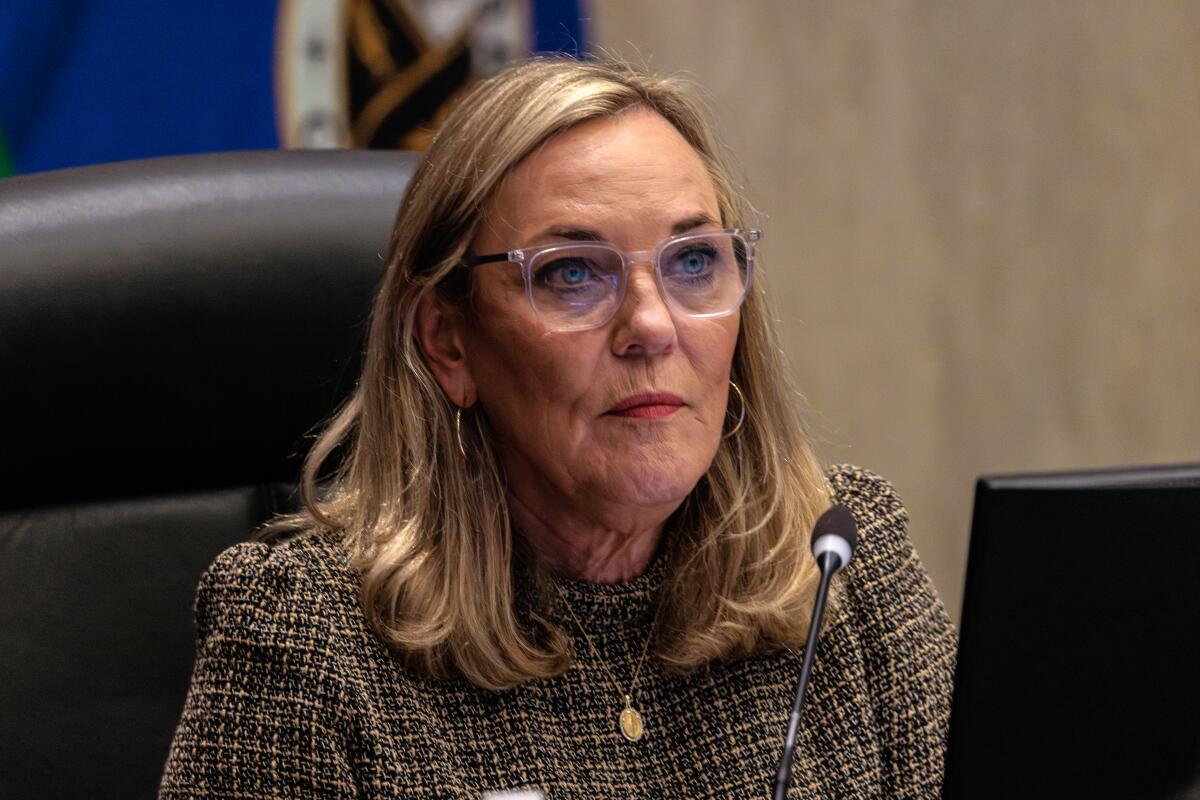‘Woke’ dance ends at Kennedy Center: L.A. arts and culture this week
Stability is a thing of the past at the John F. Kennedy Center for the Performing Arts, which this past week fired its director of dance programming, Jane Raleigh, as well as two other full-time dance programmers, Mallory Miller and Malik Burnett.
A few days later, the center announced its new dance director — a young Washington Ballet dancer named Stephen Nakagawa, who, according to the New York Times, sent a letter to the center’s president, Richard Grenell, lamenting “radical leftist ideologies in ballet.”
Nakagawa also wrote that he was “concerned about the direction the ballet world is taking in America,” that he was upset by the “rise of ‘woke’ culture,” at various dance companies and that he “would love to be part of a movement to end the dominance of leftist ideologies in the arts and return to classical ballet’s purity and timeless beauty.”
If “woke” is a MAGA dog whistle for diversity, equity and inclusion, then restoring “purity” to classical ballet could lead to a regressive whitewashing of the art form.
“With God, all things are possible,” Nakagawa wrote in a social media post announcing his appointment. “I am excited and honored to begin working with the incredible Kennedy Center and this amazing administration.”
The Kennedy Center did not respond to a request for comment about how its dance programming might change now that Nakagawa has taken over, but a person close to the situation, who declined to be identified said, “The [terminated] individuals were given multiple opportunities to come up with new ideas and failed to offer any.”
In interviews following their dismissal, Miller and Burnett said they had attended a meeting with Grenell in which he told them that they needed to prioritize “broadly appealing” programming in order to attract corporate sponsorship. Grenell reportedly used the reality TV competition “So You Think You Can Dance” as an example of what he had in mind.
What Grenell seems to be missing is that, under Raleigh, dance programming at the Kennedy Center was among the best in the nation — with broad appeal. The current season, which had been programmed before Raleigh and the others were fired, included some of the country’s most vaunted and popular companies including Martha Graham Dance Company, American Ballet Theatre and New York City Ballet.
The Kennedy Center also commissioned great work, including Mark Morris’ “Moon,” which staged its world premiere at the center in April. Times classical music critic Mark Swed caught the show at an “unusually quiet” venue shortly after President Trump staged his February takeover of the center.
“‘Moon,’” Swed told me, “served as a marvelous example of how [the] dance series already provides what both its audiences and new administration want. It celebrates American greatness, representing the historic Moonshot and Voyager space missions through wondrous dance, sanguine 1930s swing music and cavorting spacemen. There is even bit of cheerful conspiracy theory with the help of a cuddly alien or two.”
It doesn’t take a MAGA apparatchik to know that’s a winning formula.
I’m arts and culture writer Jessica Gelt, dancing my way to a better tomorrow. Here’s your arts news for the week.
Best bets: On our radar this week
Newsletter
You’re reading Essential Arts
Our critics and reporters guide you through events and happenings of L.A.
You may occasionally receive promotional content from the Los Angeles Times.

Prince on his 1987 Sign O’ The Times tour at the Palais Omnisports in Paris.
(FG/Bauer-Griffin/Getty Images)
Prince – Sign O’ The Times
The purple one’s 1987 film featuring live performances of songs from his ninth studio album gets the Imax treatment this weekend. Neither a commercial nor critical success upon its original release, interest in the project has only increased as the artist’s stature continued to rise, even after his death from an accidental overdose in 2016. Ranking Prince’s singles in 2021, Times pop music critic Mikael Wood wrote, “Inspired in part by the bad news he saw splashed across the front page of the Los Angeles Times one summer day in 1986, the title track of Prince’s magnum opus addresses AIDS and the crack epidemic in language as haunted and unsparing as the song’s rigorously pared-down groove.” The movie opens Thursday in limited theatrical release; check theaters for showtimes. www.imax.com/prince

“Villagers on Their Way to Church from Book of Hours,” c 1550, by Simon Bening (Flemish, about 1483 – 1561) Tempera colors and gold paint Getty Museum Ms. 50 (93.MS.19), recto
(J. Paul Getty Museum)
Going Places: Travel in the Middle Ages
As we wrap up our own summer excursions, what better time to vicariously explore how it was done in medieval times through this exhibition of Getty Museum manuscripts illustrating the subject, augmented by an interactive component inspired by early 8-bit arcade video games. Times art critic Christopher Knight has described Northern European manuscripts as “one unmistakable strength of the Getty’s collection.” The show opens Tuesday. 10 a.m.-6:30 p.m. Tuesday–Friday and Sunday; 10 a.m.-9 p.m. Saturday; closed Monday, through Nov. 30. J. Paul Getty Museum, 1200 Getty Center Drive. getty.edu

Violinist Anne Akiko Meyers performs Arturo Márquez’s concerto “Fandango” with the LA Phil at the Hollywood Bowl in 2021.
(Jason Armond / Los Angeles Times)
Márquez’s Fandango & Shostakovich’s Fifth
Violinist Anne Akiko Meyers performs Arturo Márquez’s Latin Grammy-winning composition with the L.A. Phil, conducted by Giancarlo Guerrero, Tuesday night at the Hollywood Bowl. The orchestra will also perform the Mexican composer’s “Danzon No. 2” and Shostakovich’s popular “Symphony No. 5.” When “Fandango,” commissioned by the L.A. Phil and written for Meyers, had its world premiere in 2021, Times classical music critic Mark Swed called it “substantial. It is based on the Mexican fandango Márquez grew up with in Sonora. His instrument is the violin, and his father was a mariachi violinist. But Márquez’s goal in the concerto was to use his folk and dance roots in a formal classical way, taking as his example such European composers as Manuel de Falla and Isaac Albéniz. In Márquez’s concerto, he allows Meyers to revel in her virtuosity. He writes melodies that sound old and worth keeping. Dance rhythms do what they’re supposed to, making feet tap and nerves tingle.” The gates open at 6 p.m. with the music scheduled to start at 8 p.m. Hollywood Bowl, 2301 N. Highland Ave. hollywoodbowl.com
The week ahead: A curated calendar
FRIDAY
🎭 Masala Dabba
Food, cooking and the titular spice box are central to playwright Wendy Graf’s world-premiere drama about an Indian/African American family directed by Marya Mazor.
7:30 p.m. Thursday-Saturday, 2 p.m. Sunday, through Sept. 14. International City Theatre, 330 E. Seaside Way, Long Beach. InternationalCityTheatre.org.
🎭 NOIR!
A Hollywood thriller is the milieu for a new immersive theatrical experience from the creators of “It’s Alive” and “The Assassination of Edgar Allan Poe.”
7:50 p.m. Friday-Sunday, Sept. 6, 13 and 20. Heritage Square Museum, 3800 Homer St. downtownrep.com
SATURDAY
🎥 Barry Lyndon
The American Cinematheque marks the 50th anniversary of Stanley Kubrick’s visually sublime adaptation of William Makepeace Thackeray’s novel about an 18th century English rogue, starring Ryan O’Neal and Marisa Berenson, with the L.A. premiere of a new 4K restoration.
7 p.m. Egyptian Theatre, 6712 Hollywood Blvd. americancinematheque.com
🎥 Drop Dead Gorgeous
Actor Denise Richards will be in person for a 35 mm screening of the 1999 small-town beauty pageant mockumentary, a darkly comedic cult favorite written by Lona Williams, directed by the State’s Michael Patrick Jann and co-starring Kirstie Alley, Ellen Barkin and Kirsten Dunst.
7:30 p.m. Academy Museum, 6067 Wilshire Blvd., Los Angeles. academymuseum.org
🎭 Just Another Day
“Wonder Years” dad Dan Lauria wrote this romantic comedy on the enduring nature of love and stars with Academy Award nominee Patty McCormack (“The Bad Seed”) as a septuagenarian couple who meet every day on a park bench to verbally spar and reminisce.
8 p.m. Friday and Saturday, 2 p.m. Sunday, through Sept. 28, with 8 p.m. Wednesday shows on Sept. 17 and 24. Odyssey Theatre Ensemble, 2055 S. Sepulveda Blvd. odysseytheatre.com
🎨 Rising Sun, Falling Rain: Japanese Woodblock Prints
An exhibition exploring the growth of Edo-period ukiyo-e printmaking and the later shin-hanga movement through more than 80 works from the Grunwald Center for the Graphic Arts features work by Katsukawa Shunshō, Utagawa Toyokuni, Katsushika Hokusai, Utagawa Hiroshige, Tsukioka Yoshitoshi and Kawase Hasui.
11 a.m.-8 p.m. Friday, 11 a.m.-6 p.m. Saturday–Sunday and Tuesday–Thursday, closed Monday, through Nov. 30. UCLA Hammer Museum, 10899 Wilshire Blvd., Westwood. hammer.ucla.edu
🎨 Martin Wittfooth: Deus ex Terra
The Canadian artist examines the repeating patterns of nature and the ways it serves as both muse and a mirror of the human soul in this solo exhibition.
Opening reception, 7 p.m. Saturday; noon-6 p.m. Tuesday-Saturday. Corey Helford Gallery, 571 S. Anderson St., Los Angeles. coreyhelfordgallery.com/
SUNDAY

The cast of “One Man, Two Guvnors” at a Noise Within: Trisha Miller, from left, Kasey Mahaffy, Ty Aldridge and Cassandra Marie Murphy.
(Daniel Reichert)
🎭 One Man, Two Guvnors
Richard Bean’s swinging ’60s British farce won James Corden a Tony Award and largely introduced him to American audiences. The show, based on “The Servant of Two Masters” by Carlo Goldoni, is directed by A Noise Within producing Artistic Directors Julia Rodriguez-Elliott and Geoff Elliott, with songs by Grant Olding.
Previews: 2 p.m. Sunday; 7:30 p.m. Wednesday-Sept. 5; opening night: 7:30 p.m. Sept. 6; 2 p.m. Sunday, 7:30 p.m. Wednesday-Friday; 2 and 7:30 p.m. Saturday, through Sept. 28. A Noise Within, 3352 E. Foothill Blvd., Pasadena. anoisewithin.org
TUESDAY
🎥 Who Killed Teddy Bear?
The Los Angeles premiere of a newly struck 35 mm print presents Joseph Cates’ uncensored director’s cut of his 1965 neo-noir thriller starring Sal Mineo, Juliet Prowse, Jan Murray and Elaine Stritch with footage seen for the first time in six decades.
7 p.m. Los Feliz Theatre, 1822 N. Vermont Ave. americancinematheque.com
WEDNESDAY
🎭 Am I Roxie?
Written-actor Roxana Ortega’s one-woman comedy is a wild ride through her mother’s mental decline. Directed by Bernardo Cubría.
7:30 p.m. Wednesday-Thursday; 8 p.m. Friday; 3 and 8 p.m. Saturday; 2 p.m. Sunday, through Oct. 5. Geffen Playhouse, 10886 Le Conte Ave., Westwood. geffenplayhouse.org
THURSDAY
🎭 Oedipus the King, Mama!
Troubadour Theater, a.k.a. the Troubies, applies its brand of commedia dell’arte-inflected slapstick to Sophocles’ classic Greek tragedy, infused with the music of Elvis Presley.
8 p.m. Thursday-Saturday, through Sept. 27. The Getty Villa, 17985 Pacific Coast Highway, Pacific Palisades. getty.edu
🎼 Mozart’s Requiem
Conductor James Gaffigan leads the L.A. Phil in the composer’s final, uncompleted Mass, with the Los Angeles Master Chorale, preceded by Ellen Reid’s “Body Cosmic” and Brahms’ “Song of Destiny.”
8 p.m. Hollywood Bowl, 2301 N. Highland Ave. hollywoodbowl.com
Culture news and the SoCal scene

Danielle Wade as Maizy, left, and Miki Abraham as Lulu in the North American Tour of “Shucked” at the Hollywood Pantages Theatre.
(Matthew Murphy and Evan Zimmerman)
If you’re a sucker for puns, you’ll love “Shucked,” the musical comedy running through Sept. 7 at the Hollywood Pantages Theatre. The show, writes Times theater critic Charles McNulty, “never met a pun it didn’t like.” But there’s more to the folksy tale of mixed-up love in a place called Cob County — “Shucked” is a “folksy farcical riot, wholesome enough for widespread appeal but with just enough flamboyant oddity to tickle the funny bone of urban sophisticates.” The actors are also top-notch, including Danielle Wade, who plays the female lead Maizy. Wade, writes McNulty, “sounds like an ingenue Dolly Parton, exquisite to listen to, especially when her heart is in play.”
The Los Angeles County Museum of Art’s annual Art+Film Gala returns for its 14th year. This year’s honorees are filmmaker Ryan Coogler and Light and Space artist Mary Corse. The elaborate dinner — which always attracts a high-powered Hollywood crowd — is co-chaired by LACMA trustee Eva Chow and Leonardo DiCaprio. It’s scheduled to take place on Nov. 1 and will be the last such event to occur before the museum opens its new Peter Zumthor-designed building next spring.

Tyrone Huntley, an usher at the Hollywood Bowl.
(Jason Armond / Los Angeles Times)
Remember the fabulous actor who played Simon in the Hollywood Bowl’s unforgettable “Jesus Christ Superstar”? The one who also served as an understudy for Cynthia Erivo’s Jesus? His name is Tyrone Huntley, and his story is similar to those of countless working actors in L.A. Namely that he also has a day job. Only in Huntley’s case, his day job is working as an usher at the Hollywood Bowl. One day he was onstage in one of the season’s hottest shows, and the next he was showing people to their seats at the very same venue. Read all about it here.
Enjoying this newsletter? Consider subscribing to the Los Angeles Times
Your support helps us deliver the news that matters most. Become a subscriber.
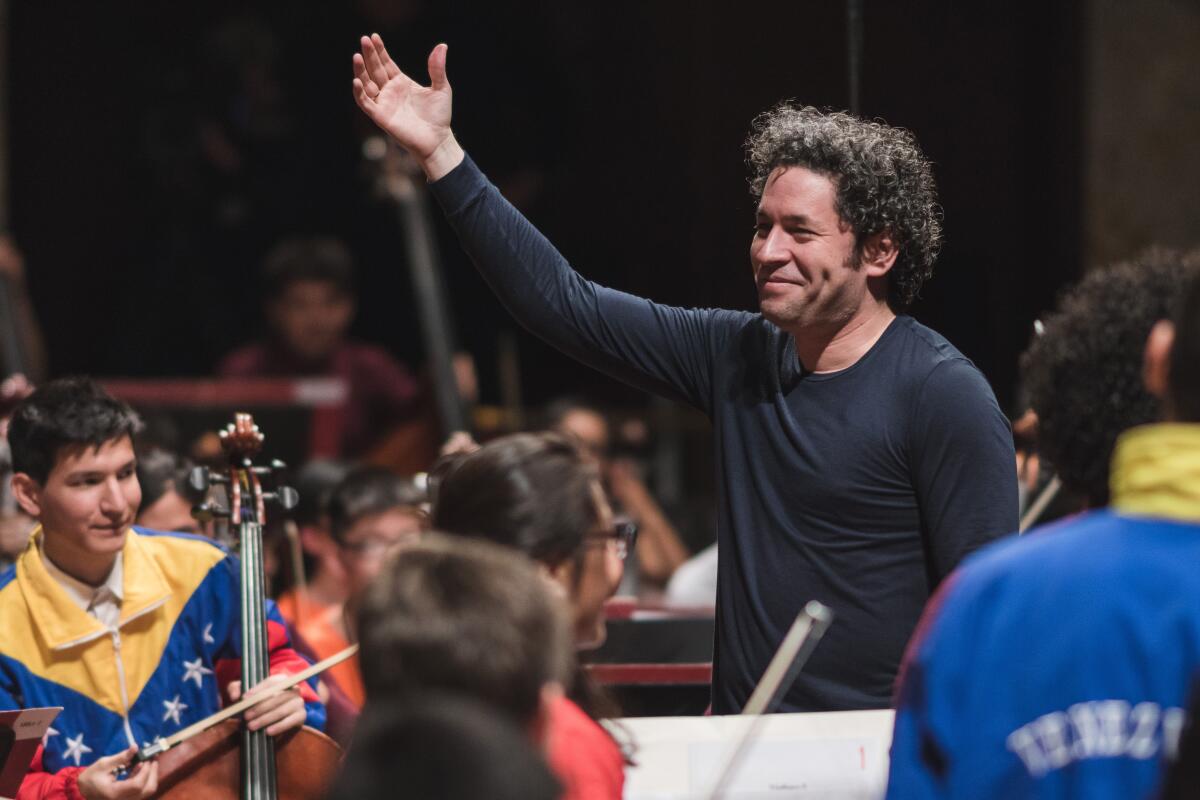
A scene from the 2022 documentary “¡Viva Maestro!”: Gustavo Dudamel smiles as he wraps up Encuentros performance in Palacio de Bellas Artes.
(Gerardo Nava / The Gustavo Dudamel Foundation)
Gustavo Dudamel is still the music director of the Los Angeles Philharmonic, but he’s already got one foot in New York City, where he is scheduled to become the music director of the New York Philharmonic in September 2026. This week the N.Y. Phil issued a news release highlighting Dudamel’s presence in its 2025-26 season. As the orchestra’s music and artistic director designate, Dudamel will lead six weeks of subscription programs, as well as the season-opening concerts. Next month he will conduct the world premiere of Leilehua Lanzilotti’s “of light and stone.”
Almost two years ago, Holocaust Museum LA broke ground on a $65-million expansion. It is now a less than a year out from opening at its new Jona Goldrich campus, which includes a 200-seat multipurpose theater, a 3,000-square-foot gallery, two classrooms, an interactive theater featuring a virtual Holocaust survivor, a pavilion with an authentic boxcar, a gift shop and a coffee shop, as well as a variety of outdoor community spaces. Designed by architect Hagy Belzberg, it will double the museum’s footprint in Pan Pacific Park.
The Consortium of Asian American Theaters & Artists issued a news release voicing concern “over the recent and evolving casting decisions in the Broadway production of ‘Maybe Happy Ending’,” created and written by Hue Park, with music by Will Aronson. The Michael Arden-directed Broadway adaptation won six Tony Awards this year, including for best musical, direction of a musical and lead actor in a musical (Darren Criss). However, after the award wins, Criss, who is of Filipino descent, took a leave of absence from the show and was replaced by a white actor, Andrew Barth Feldman. “This is not just about one casting decision, even if only momentary. It reflects a longstanding pattern of exclusion, whitewashing, and inequity that AAPINH and global majority artists have confronted for decades in U.S. theater,” the news release said.
— Jessica Gelt
And last but not least
Ojai’s Hotel El Roblar, which first welcomed guests in 1919, has officially reopened. The newest hotel in Ojai is now also its oldest, writes Times Travel writer Christopher Reynolds. See you there!

